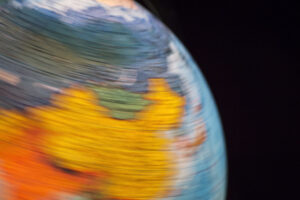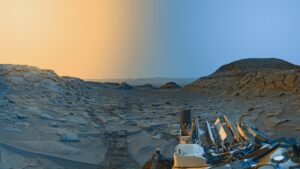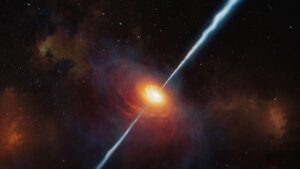“If you think you understand quantum mechanics, you don’t understand quantum mechanics,” theoretical physicist Richard Feynman said. Quantum mechanics is a Goliath I have no intention of fighting, but that doesn’t mean I can’t delve into some interesting concepts. Many of us are fascinated with the idea of black holes, but did you know that they might have a twin? White holes are cosmic ghosts that exist mathematically, but how about in reality?
Background
In 2019, NASA unveiled the first image of a supermassive black hole at the center of galaxy M87. Despite its fuzzy appearance resembling an “orange donut,” space’s most mysterious object captured the imaginations of millions. At the center of our own Milky Way, there is another black hole: Sagittarius A.
Black holes are objects with gravity strong enough that matter and light cannot escape. They suck in everything, from the smallest particles to whole stars and planets. Should you be unlucky enough to cross paths with this cosmic vacuum cleaner, gravity will turn you into spaghetti, stretching you until the end of time.

Illustration of a black hole. Photo: Merlin74/Shutterstock
In theory, black holes might have an exit point called a white hole. Hypothetically, a white hole is a black hole but in reverse. Instead of pulling matter and light toward it, nothing can enter a white hole. Anything crossing a white hole’s event horizon would be flung out into space.
While a black hole always exists in its future, this could mean that white holes make time run backward. If a black hole stretches you until the end of the universe, a white hole could take you back to the moment of the Big Bang.
We have no physical evidence of the existence of white holes except for Einstein’s theory of General Relativity. German scientist Karl Schwarzschild started to play around with the idea of white holes when he was exploring how black holes worked. other scientists in the 1960s and 1970s started to build on the idea but there has been limited research in recent years.
Theories
Some people believe that a black hole is the entry point to another location in space or time. Movies love this idea, with black holes appearing in films like Event Horizon and Interstellar.
If black holes are the entry point and the white holes are the exit, this would mean a wormhole exists between the two. Some of Einstein’s equations suggest that this phenomenon could exist, a region that can bend space and time could shorten longer distances across them. A wormhole could lead us to another galaxy, universe, the past, or the future.

Lorentzian Wormhole showing the entry and exit points. Photo: AllenMcC/Wikipedia Commons
Occasionally, astronomers have mistaken quasars for white holes. Quasars are unique supermassive black holes, in which gas and dust fall into the black hole and create immense levels of luminosity and radiation. They are the brightest objects in the universe and look like a massive whirlpool of stars, dust, and other matter with a bright white laser beam ejecting from their center.
Some people think that white holes are connected to other phenomena, like gamma-ray bursts. Gamma-ray bursts are huge luminous explosions resulting from the collision of neutron stars or between a star and a black hole. They release unfathomable amounts of light and energy. However, most current theories suggest white holes do not have much to do with stars at all.
The origins of our universe might hold the answer to whether white holes exist. According to researchers Aguilar, Moreno, and Bellini, the universe might have started with a white hole explosion.
While mathematically the existence of white holes is possible, most scientists don’t believe they exist. We know that black holes exist because we have detected gravitational waves rippling across space. We have not found any gravitational anomalies to suggest that white holes exist. At least, not yet.






